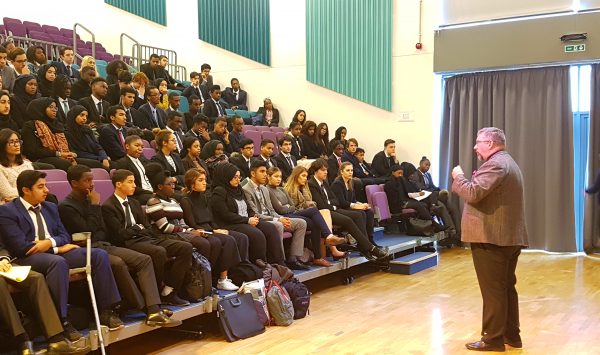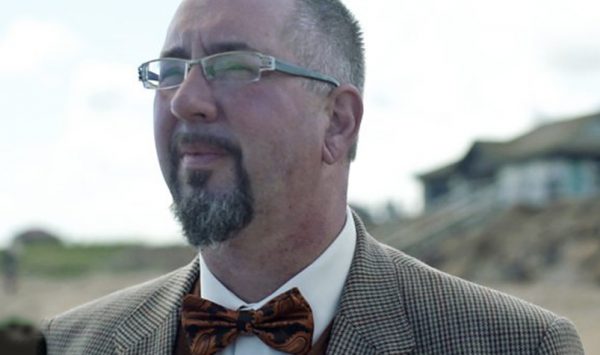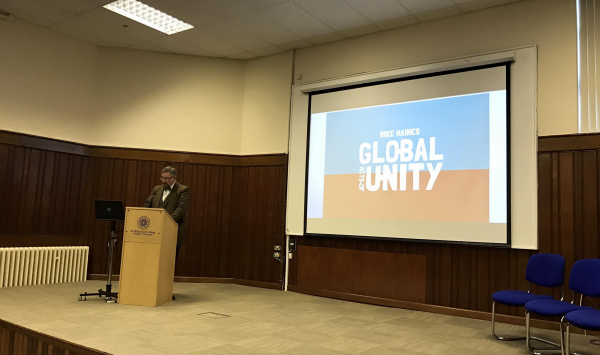Earlier this month I was very honoured to be asked to give the keynote speech at the launch of the Bradford Hate Crime Strategy Launch in Keighley on the 14th of September.
It is wonderful to see the work that Bradford Council and its partners have been and are doing to bring about a more inclusive society in such a wonderfully diverse city. I am very happy to admit that I do have a tenuous connection to Bradford. Relatives of mine stayed in the city a few years back and I have visited Bradford many times since. My father was also a proud Yorkshireman, Halifax born and bred. He used to tease me that since I was born a Scot, I could not play cricket for Yorkshire and that of course is what stopped me from pursuing a professional career.
When I received the invitation to speak at the launch I was all too eager to accept. To speak in the great city of Bradford, and to speak about an issue that is so dear to my heart, really meant a lot.
Bradford District, like everywhere all across the UK, is experiencing a rise in hate crime. The people and authorities of Bradford District have launched a programme and a set of initiatives that will hopefully have far reaching effects.
So, readers, what has this got to do with you? Well, sadly the rise of hatred is an issue that has crept out of the gutter in many communities recently, and we have reached a point where we could go one of two ways. Some people might be tempted down the dark path of division and fear, a path which I myself have seen, that leads towards hatred and escalating violence. Alternatively, we could take a path that benefits all our communities, the path that leads upwards to understanding, inclusion, unity and the rejection of hate.
The callous murder of my brother, the bombing of a teenage concert in Manchester, the deplorable attack on a place of worship in Finsbury Park, the inexcusable name-calling of people based on their religion – they all have one thing in common; to incite hatred. The perpetrators of these actions do not care about their victims, nor the victims’ loved ones who are caught in the cross-fire.
The sole purpose of these acts of atrocity is to stir uproar, to wreak havoc, to sow fear and division in the strong, loving society we live in. No matter who the victims are or the intended effects of the crime, in every instance we must collectively deliver a clear message of togetherness to counter hatred. Ultimately, it is it is how we react as people and as communities that defines us as a society.
Of course, it is natural to feel anger, frustration, horror, fear when faced with any act of hatred. It is normal to want to strike back at those who you feel are responsible for those hateful acts. It is important that we stop and think about those feelings, and it is even more important that we act in a way that does not cause more hatred. Just as it would have been wrong for me to blame the people of Islam for my brother’s death, it would be wrong to hold anyone but the perpetrator of a hate crime accountable for their actions. It is important that we report crimes such as these, however small they might seem, to the police through the various avenues available to us.
It is completely normal to feel embarrassment when someone calls us a name. Sometimes, people might be afraid to go to the police with issues they think their complaints are insignificant, either because they have become a part of their everyday life or because they fear a complaint might not be followed up on. However, we need to recognise that if we do not report these actions, we are legitimising the actions of these hatemongers. Only through reporting these crimes through the proper legal channels can these issues be tackled head on. By reacting with violence to a wrongdoing committed against you, their hatred will only be aggravated and will stir further hate crime in the future.
Acts of hatred work like a degenerative cancer. It spreads like a poison, it blinds people of even their staunchest and most longstanding values, and it clouds one’s ability to look at things objectively. There is a danger that in this current climate of suspicion, mistrust and division, that this hate, this cancer, if untreated, will poison even those on the receiving end of it.
All acts of violent extremism are rooted in hate, and often that hate has been inherited from the poisonous influence of others. Hateful thoughts turn to hateful words, hateful words to hateful abuse and violence. In many ways, hatred steals humanity from a person, and it threatens to do so to everyone that falls within its destructive path.
The attacks in London, Manchester, Finsbury Park, Barcelona, hit our headlines, emotions run high and hate crimes rise like never before. The statistics don’t lie. Now more than ever the stand against such crimes are important. We need to show the hatemongers that we will not fall for the tricks and rhetoric.
Bradford District like many councils is leading the way with its latest strategy, one that specifically looks to counter hate crime. It is only by adopting such an inclusive, multi-disciplined, multi-faceted approach that we can really tackle this issue head on. The council is firmly taking a hold of this issue in encouraging its community and its individuals to challenge the prevalence of hate speech.
Speaking at Bradford was a real privilege and honour for me. I made many new friends and look forward to my return to the area.


